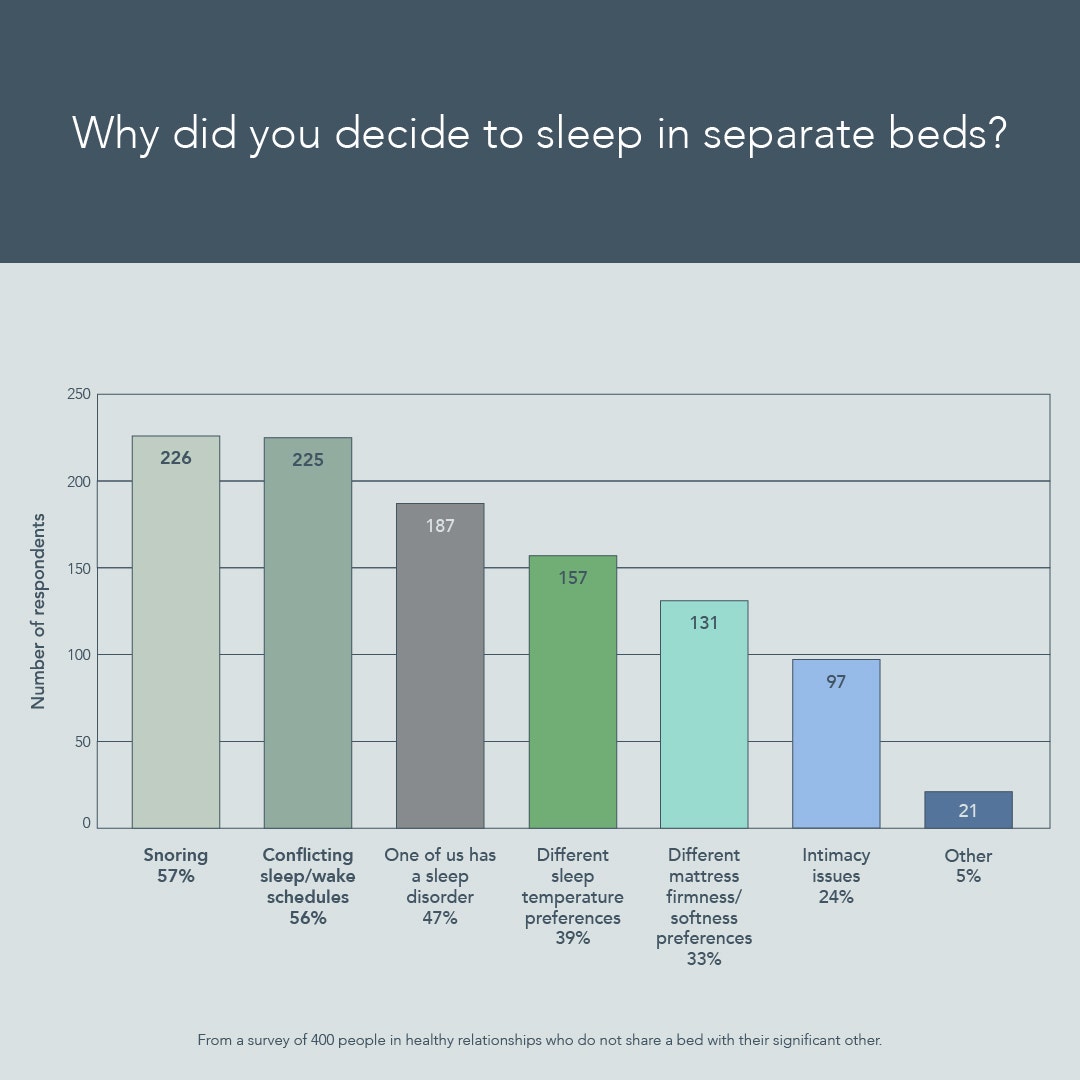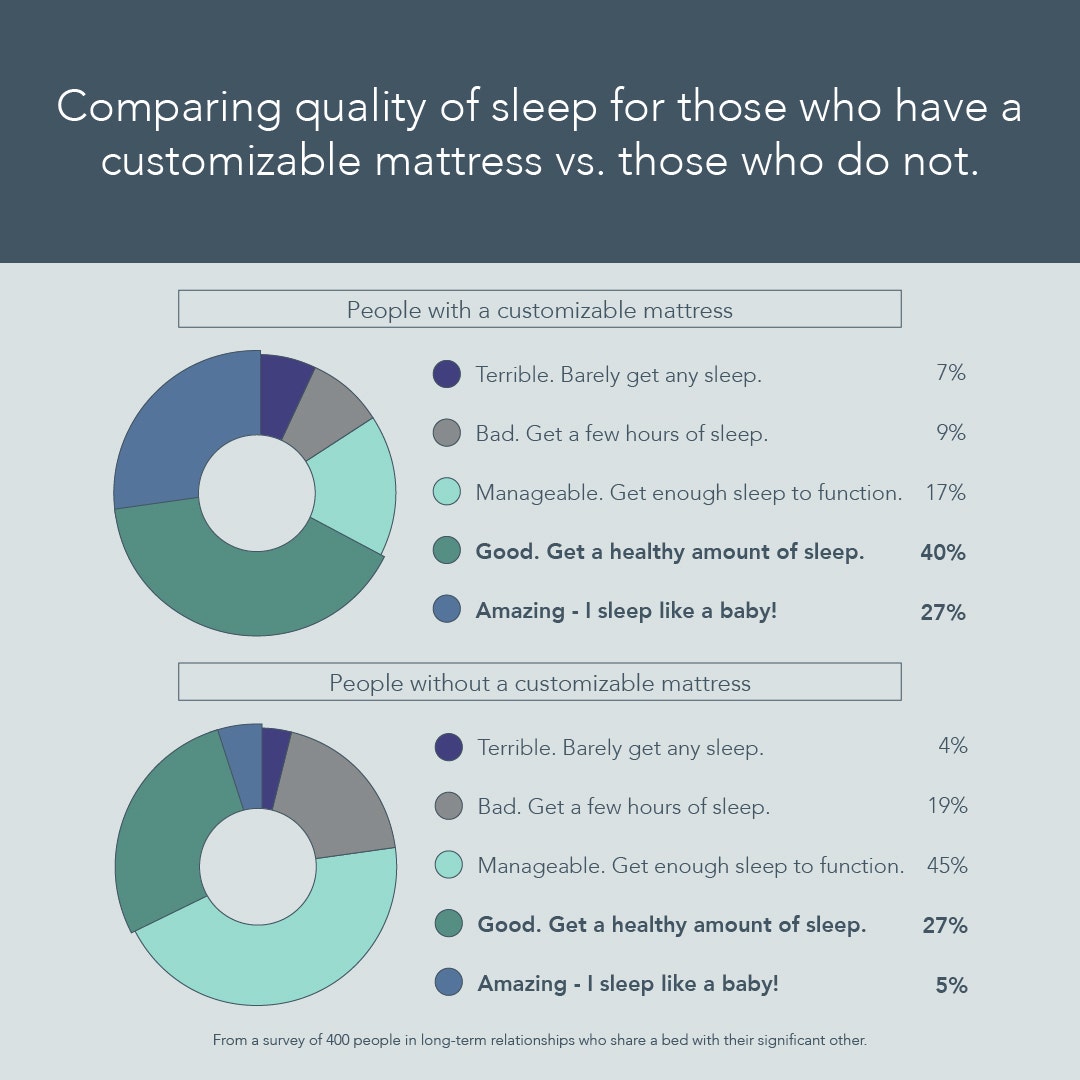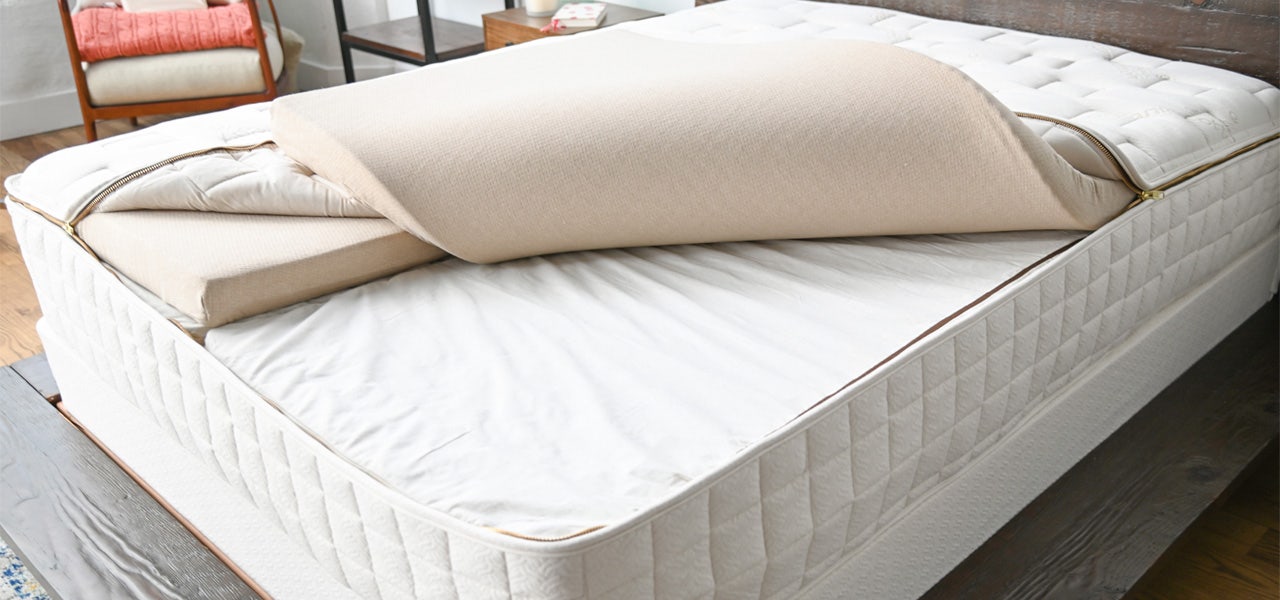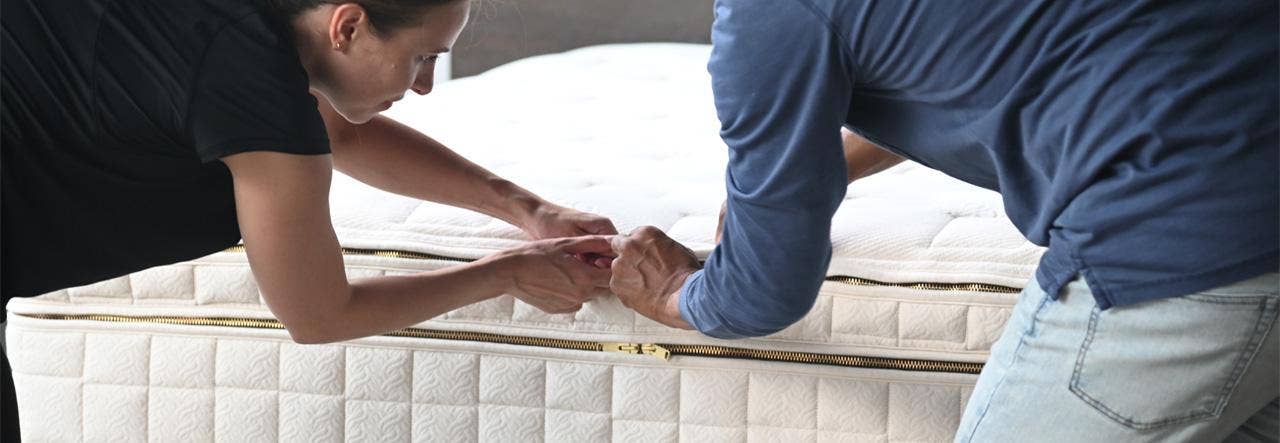Relationships are all about compromise, right? We’re told that from a very young age, especially in regard to the person we want to walk through life with. Compromise is part of the magic of falling and staying in love.
And yet.
Couples of all ages and all stages seem to hit roadblocks in their ability to compromise with one another. Money, chores, quality time, family obligations – these can all cause disagreements. While sleep doesn’t top the list of reasons couples argue, it is a source of bickering. Sleep deprivation also has a pesky way of making small problems feel a lot bigger.
You and your significant other should find ways to fairly divvy up the housework and manage your finances. However, when it comes to getting a good night’s sleep, compromise may not be the right answer. Deep, restorative sleep is essential to your well-being – and potentially to your relationship, too.
Common Reasons Couples Struggle to Get Good Sleep


A lot of people find it difficult to get quality sleep beside someone else. If you’re a light sleeper yourself, or if you tend to “run hot” and your partner is a “freeze baby,” you may be nodding your head.
Why do so many couples struggle with bed sharing? We recently surveyed 800 people, 400 who share a bed with their partner and 400 who sleep separately from their significant other.
The top reasons people cited for sleeping separately include:
- Snoring (57%)
- Conflicting sleep schedules (56%)
- Sleep disorders (39%)
- Wanting different sleep temperatures (39%)
- Different mattress firmness preferences (33%)
Why You Shouldn’t Compromise on Sleep
We all know that sleep is essential to keeping our brains and bodies healthy. When your significant other keeps you up with those oh-so-endearing foghorn-like snores, or when your 5 a.m. alarm disrupts their sleep day after day, your and your partner’s health and well-being are taking a hit.
Just a few nights of poor sleep can affect your stress levels. But, the effects of sleep deprivation also include a weakened immune system, increased pain sensitivity and hormone imbalances. In fact, long-term sleep deprivation has even been linked to an increased risk of:
- High blood pressure
- Heart attack and stroke
- Diabetes
- Obesity
- Fertility issues
- Mental health disorders
How Sleep Deprivation Can Impact Your Relationship
Your relationship’s health could also be in danger if you and partner’s sleep habits, sleep/wake schedules or natural circadian rhythms are out of sync. Here’s why:
Heightened Emotions
Poor sleep can make you feel overly sensitive, irritable or anxious (sometimes all at once). This can lead to overreacting to things your significant other says or does, and you may end up either feeling way more hurt than you really are or snapping at your partner when you aren’t truly that angry.
Memory and Cognitive Function
Our brains quite literally don’t function at as high of a level when we’re sleep deprived. Paired with those heightened emotions, this can provide plenty of fodder for avoidable spats. Have you ever started an argument with a partner by saying something like, “How many times have I asked you not to…?”
Impaired Judgment
There’s a reason that drowsy driving is compared to drunk driving. Sleep deprivation slows your reaction times and impairs your judgement. In the context of an argument, this could manifest in behaviors you would never engage in when thinking clearly, such as name-calling or bringing up past arguments in the heat of the moment.
Just Plain Tired
When we’re exhausted for days at a time, we run the risk of letting go of the little kindnesses we do for the ones we love, skipping date nights because we’re too tired, ordering takeout and eating in front of the TV instead of connecting, etc. Relationships require effort, and if you’re too tired, you may end up skimping on it.




To some people, this idea may sound drastic. To others, it’s actually the simple change that ended up making a big impact. Our survey results probably won’t make it any easier for you to decide if this option is right for your relationship, considering:
- People who share a bed were more likely to rate their relationship “Amazing”
- More people who sleep alone report falling asleep within 10 minutes
Worried the data shows you need to choose between sleeping near your sweetheart and sleeping at all? Don’t be.
We also found that a simple solution can help many couples get the sleep they need without any compromise – a customizable mattress. People with customizable mattresses were almost twice as likely to rate their sleep as “Good” or “Amazing” than couples sleeping on regular mattresses. Read the full study here.
Should You and Your Partner Stop Sleeping in the Same Bed?
Comfort Without Compromise – Naturepedic Can Help!
Here’s the great news: Naturepedic can help you and your partner at least agree on a mattress.
That’s because our EOS collection provides certified organic customizable mattress options that allow you and your sleep partner to individually personalize your comfort preferences. You can easily access and swap out comfort layers on each side of the bed – conveniently changing from extra firm all the way to plush – so you and your other half can both have the comfort and support you need to sleep well.


The EOS organic mattress sleeps cool and contours to your body, while also featuring individually encased coils to reduce motion transfer. That means fewer disturbances when your partner tosses and turns. Plus, like all our mattresses, the EOS is made without polyurethane foam, flame retardants or other toxic chemicals, which is just one more way you can show care for each other’s well-being. Browse the EOS collection here.
 BABY
BABY  KIDS
KIDS  ADULT
ADULT  LEARN
LEARN  STORES
STORES 